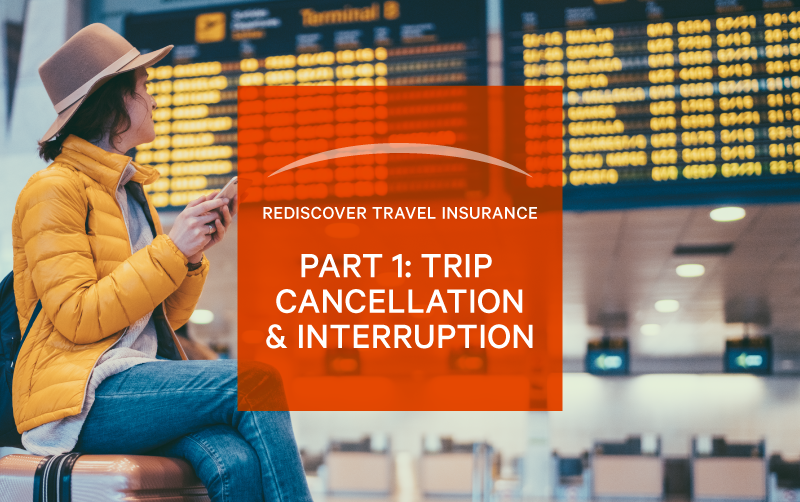Since the onset of the coronavirus pandemic, travel insurance providers have made policy changes to better protect you from unforeseen events and situations beyond your control. This is important, as sooner or later, you can be sure we’ll be revisited by regional epidemics, pandemics, volcanic eruptions, hurricanes, civil demonstrations, or terrorist attacks—perhaps even wars. History has taught us that much.
Over the next few weeks, we’re going to explore what’s new in travel insurance, what’s essential for you to know in fashioning the best coverage for you and your family as we return to normalcy, how to get the most value for your money, and how to earn peace of mind.
When to cancel a trip—and how
Let’s start with the issue that generated so much concern this past year: coverage for trips that were cancelled, interrupted, or delayed beyond endurance.
Traditionally, Canadian travel insurance has primarily focused on emergency medical benefits: high hospital costs and medical fees in foreign countries (especially the United States) that are only marginally covered (often less than 5 per cent) by government health insurance plans. It has been more than 30 years that private health insurers have been picking up the burden of foreign medical bills for Canadian travellers—bills often soaring to six figures.
During this time, cancellation/interruption benefits have been incorporated into many travel insurance plans. But it took mass cancellations of cruise and airline itineraries as well as border closures during the pandemic to focus on the details and limitations of trip cancellation coverage.
Traditionally, the allowable reasons for claiming trip cancellation benefits have been individually listed in policy contracts. They were specific. They included an onset of sickness or injury in the traveller or the traveller’s companion; death in the traveller’s or companion’s family; a call to jury duty; sudden job loss; catastrophic damage to the traveller’s or companion’s home; unexpected weather event such as hurricane or flood at the trip destination; the failure of the traveller or companion to obtain required travel documents; cancellation or rescheduling of a destination business meeting; a default or suspension of a travel supplier such as a cruise, airline, or tour operator; and other similar scenarios—all spelled out in the contract.
But what the benefits didn’t cover were cancellations for other, unspecified reasons, such as changing one’s mind about travelling to a certain destination, or fear of catching disease, or bad weather at the chosen destination, or simply dealing with uncertainties during troubling times.
Prior to the pandemic’s readjustment of world travel, Cancel for Any Reason (CFAR) plans were gradually beginning to catch on, even though they cost some 40 per cent more. But since then they have grown in popularity because of the flexibility they offer travellers to plan with more incentive and imagination. With a conventional trip interruption policy, if you cancelled to avoid a hurricane only to see the storm do a sharp turn and head back out to sea, that would void your cancellation claim. No damage, no reason to cancel. But with a CFAR option, the trip cost is protected.
But remember the caveat
What is protected is only what has been prepaid and is non-refundable. If the trip supplier—resort, hotel, cruise, airline, or tour operator—returns your cash, rebates to your credit card, or offers a voucher for a future time, the insurer is not liable to make good. No double dipping. And there is no reimbursement for the lost enjoyment of a long-planned dream trip.
Also understand that what you’re buying with trip cancellation is protection OVER TIME, and you’re expected to buy that protection when you buy your trip—or within a few days of your purchase. And then expect diminishing returns as time goes by. The closer you get to your scheduled departure, the smaller the payout you can expect. And if you get to a certain threshold—like 14 days before your cruise—the benefit will have expired. You can’t expect a cruise ship or hotel, operating in high season, to take a loss for your “no-show.”
Trip cancellation benefits can give you great peace of mind. But you need to understand the rules.
In the next article, we’ll get into understanding how pre-existing medical conditions may be covered in your travel insurance policy.
© Copyright 2021 Milan Korcok. All rights reserved.
To find out more about how MSH Americas can help you, please don’t hesitate to contact us.
HelpLine@americas.msh-intl.com
+1 416 730 8488 (or toll-free at +1 800 360 3234)

